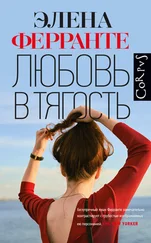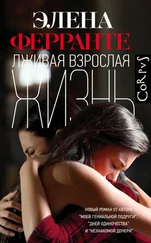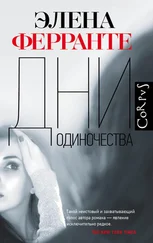It seemed to me that she intended to mock her with all that praise, even more than in the morning. We must have grown so in tune that I imagined I could hear in my head, with a destructive energy, her traitorous voice, her vulgar words: what’s the use, bitch, of getting all decked out like this, your husband is fucking the mamma of my niece Giannina, oh, oh, oh. So I prayed again to the Lord God, especially when Vittoria got in the car and we set off. I prayed all the way to San Giacomo dei Capri, an interminable journey during which Vittoria didn’t say a word and I didn’t dare ask her another time: don’t say anything to my father, I beg you; if you want to do something for me, reprimand my mother but keep the secret from my father. I entreated God, even if he didn’t exist: God, don’t let Vittoria say I’m coming up with you, I have to speak to your father.
To my great astonishment, I was again miraculously heard. How wonderful miracles were and how decisive: Vittoria left me outside without even a mention of my mother, Mariano, my father. She said only, in dialect: Giannì, remember that you’re my niece, that you and I are alike, and if you call me, if you say, Vittoria, come, I’ll hurry right away, I’ll never leave you alone. Her face, after those words, seemed more serene, and I wanted to believe that if Angela had seen it now she would have found it beautiful, just as at that moment it seemed to me. But as soon as I was alone, at home—while, shut in my room, I looked at myself in the closet mirror and confirmed that no miracle would ever be able to erase the face that was coming to me—I gave in and finally wept. I resolved not to spy on my parents anymore, and never to see my aunt again.
9.
When I try to assign phases to the continuous flow of life that has passed through me up until today, I’m convinced that I permanently became someone else when, one afternoon, Costanza came to visit without her daughters. Overseen by my mother, who for days had had puffy eyes and a reddened face—due, she said, to the cold wind that blew from the sea and caused the windowpanes and the balcony railings to vibrate—Costanza, her face severe, sallow, gave me her white-gold bracelet.
“Why are you giving it to me?” I asked, bewildered.
“She’s not giving it to you,” my mother said, “she’s returning it to you.”
Costanza’s beautiful mouth quavered for a long moment before she managed to say:
“I thought it was mine, but it was yours.”
I didn’t understand, I didn’t want to understand. I preferred to thank her and try to put it on, but I couldn’t manage. In absolute silence Costanza, fingers trembling, helped me.
“How does it look?” I asked my mother, pretending frivolity.
“Good,” she said without even a smile and left the room, followed by Costanza, who never came to our house again.
Mariano, too, disappeared from Via San Giacomo dei Capri, and as a result I saw Angela and Ida less frequently. At first, we talked on the telephone: none of us three understood what was happening. A couple of days before Costanza’s visit, Angela told me that my father and her father had had a fight in the apartment on Via Cimarosa. At the outset, the discussion had seemed very similar to the ones they had on the usual subjects, politics, Marxism, the end of history, economics, the state, but then it had turned surprisingly violent. Mariano had shouted: now get out of my house immediately, I don’t want to see you ever again; and my father, suddenly dissolving his image of the patient friend, had begun yelling the ugliest words in dialect. Angela and Ida were frightened, but no one paid any attention to them, not even Costanza, who at a certain point couldn’t bear to listen to the shouting and said she was going to get some air. At which Mariano shouted, also in dialect: yes, get out, slut, don’t come back, and Costanza slammed the door so hard that it reopened, Mariano had to kick it closed, my father opened it again and ran after Costanza.
In the following days, all we did was talk on the phone about that fight. Neither Angela nor Ida nor I could understand why Marxism and the other things our parents discussed passionately even before we were born had suddenly caused so many problems. In reality, for different reasons, both they and I understood much more of that scene than we admitted. We intuited, for example, that it had to do with sex, not Marxism, but not the sex that interested and amused us in every circumstance; we felt that, completely unexpectedly, a form of sex was erupting into our lives that wasn’t attractive, that in fact disgusted us, because we dimly perceived that it had to do not with our bodies, or the bodies of our contemporaries, or actors and singers, but with the bodies of our parents. Sex—we imagined—had drawn them into something sticky and repulsive, utterly different from what they themselves had taught us. According to Ida, the words that Mariano and my father had shouted at each other gave the idea of feverish spitting, of threads of mucus that smeared everything, especially our most secret desires. It was for this reason, perhaps, that my friends—very inclined to talk about Tonino, Corrado, and how much they liked those two boys—became sad and began to turn away from that type of sex. As for me, I knew much more about the secret dealings in our families than Angela and Ida, so the effort to avoid understanding what was happening to my father, my mother, Mariano, Costanza was much greater and exhausted me. It was I, in fact, who in distress withdrew and abandoned the telephone confidences. Maybe, more than Angela, more than Ida, I felt that a single wrong word would open a dangerous passage to the reality of the facts.
In that phase, lies and prayers established themselves solidly in my daily life and again helped a lot. The lies, for the most part, I told myself. I was unhappy, and in school and at home pretended an extreme cheerfulness. I would see my mother’s face in the morning on the verge of losing its features, red around the nose, disfigured by depression, and I would say in a tone of gay affirmation: how nice you look today. As for my father—who had all of a sudden stopped studying as soon as he opened his eyes, whom I found ready to go out early in the morning, or very pale, with dull eyes, in the evening—I constantly presented him with exercises that I had to do for school, even though they weren’t complicated, as if it weren’t obvious that his mind was elsewhere and he had no wish to help me.
At the same time, although I continued not to believe in God, I devoted myself to prayer as if I did. God—I entreated—let the fight between my father and Mariano be about Marxism and the end of history, let it not be because Vittoria telephoned my father and reported to him what I told her. At first, it seemed to me that the Lord was listening to me yet again. As far as I knew, it was Mariano who had attacked my father and not the opposite, as would surely have happened if Vittoria had used my information to be, in turn, an informer. But I quickly realized that something didn’t add up. Why had my father railed against Mariano in a dialect he never used? Why had Costanza left the house slamming the door? Why had my father, not her husband, run after her?
Behind my casual lies, my prayers, I lived in apprehension. Vittoria must have told my father everything, and my father had rushed to Mariano’s house to fight about it. Costanza, as a result of that fight, had discovered that her husband was holding my mother’s ankles between his under the table and had in turn made a scene. It must have happened like that. But why had Mariano yelled at his wife, while she, desolate, left the apartment on Via Cimarosa: yes, get out, slut, don’t come back? And why had my father run after her?
Читать дальше
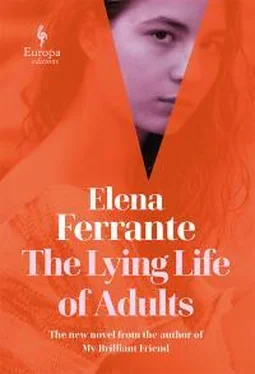
![Элена Ферранте - История о пропавшем ребенке [litres]](/books/32091/elena-ferrante-istoriya-o-propavshem-rebenke-litres-thumb.webp)
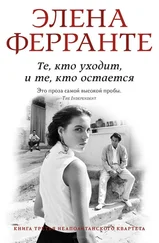
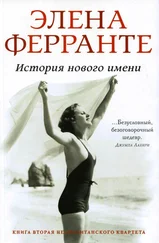
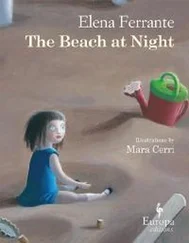
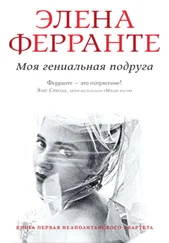
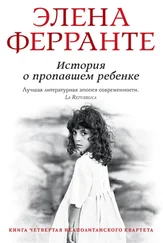
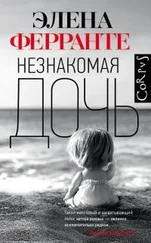
![Элена Ферранте - Дни одиночества [litres]](/books/404671/elena-ferrante-dni-odinochestva-litres-thumb.webp)
